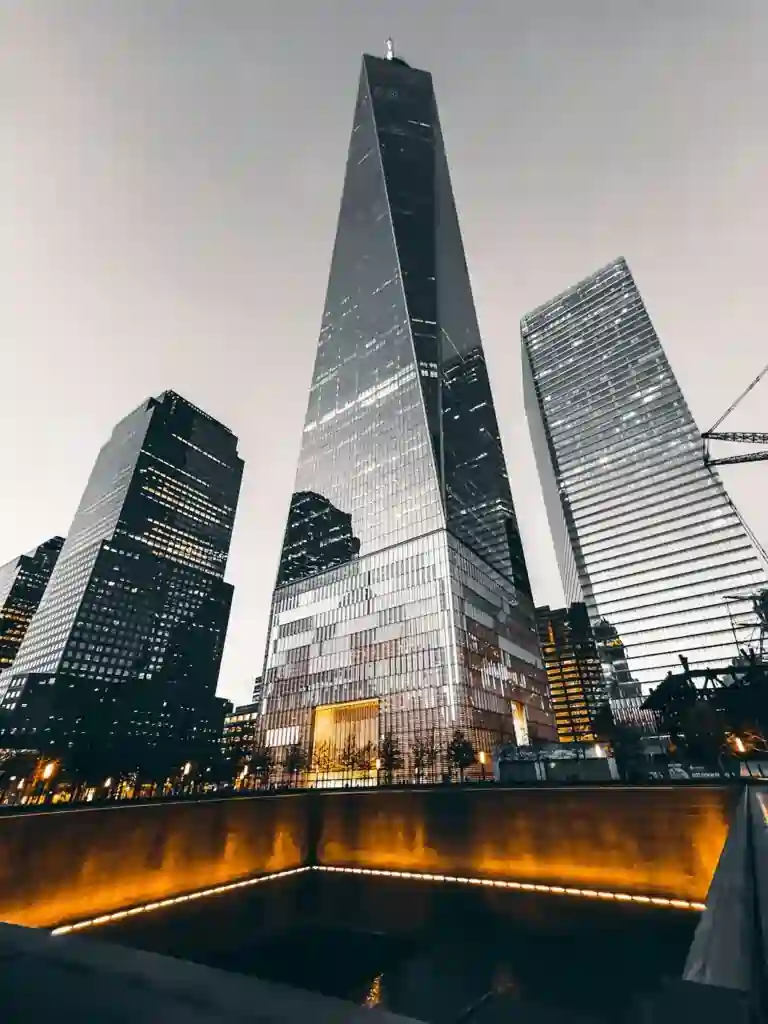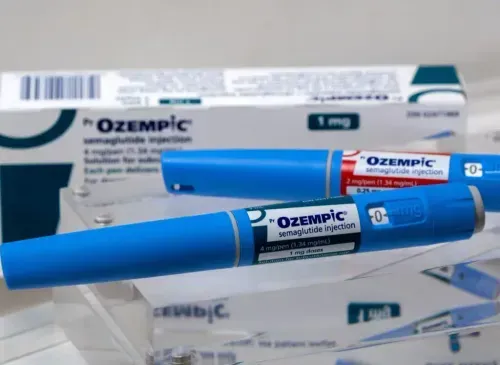Our Premises Liability Practice Areas
Claims can stem from a variety of incidents and accidents. Our law firm has extensive litigation experience in premises liability cases. At Parker Waichman LLP, we represent clients in complex premises liability litigation. Although our firm represents clients in all types of premises liability injury cases, the following accidents and injuries are our primary focus.
Fall Injuries Due to Railing Failures
Railings on a staircase or balcony are supposed to protect individuals from accidental falls and injuries.
However, many apartment, condominium, building, hotel and property owners fail to take appropriate steps to ensure that their railings are maintained and in a safe condition.
When a premises owner does not uphold their duty to keep their railings in a safe condition, or does not warn a resident, guest, or visitor of a dangerous condition, they can be held liable for any injuries that result.
Some common causes of a railing failure accident include:
- Wear and Tear
- Rusty Bolts or Screws
- Failure to Inspect or Maintain
- Failure to Warn
Workplace Violence Injuries and Wrongful Death Actions
Every year, employers and employees in several different industries come face to face with issues related to violence in the workplace.
The hospitality industry is particularly prone to workplace violence given that on a near daily basis, employees deal with guests who have consumed alcohol or drugs, or guests who are frustrated with their situation.
Workplace violence is typically perpetrated by two types of individuals:
(1) An employee is violent towards a fellow employee.
(2) A third party is violent towards an employee.
Owners of businesses take on a lot of responsibility for their employees and any guests or customers of the business. In these situations, an employee or guest may become aggressive and violent resulting in a physical confrontation with other employees or guests. These altercations often result in serious physical injury or death.
Business owners can be held liable for injuries that occur due to workplace violence according to a number of different laws and legal theories. These laws and theories can include the state’s workers’ compensation program, but also, under premises liability law, it is possible for a business owner or employer to be held responsible for workplace violence injuries. Under this theory, if an employer fails to exercise reasonable care to prevent intentional harm to an employee or guest, they can be liable for injuries.
Although a business owner or employer cannot control how an employee or a customer conducts themselves, they can follow appropriate measures to keep other employees or guests safe, including making sure that their employees are adequately and properly trained to recognize and respond to potentially violent situations making sure there are emergency procedures for dealing with a violent situation, and/or ensuring that their business has adequate security in place.
Improper Hotel Security
The lack of adequate hotel security can result in serious injuries. When a hotel security incident occurs, the hotel can be held liable under premises liability law just as they would if another accident occurred on hotel property such as a slip and fall, a pool or spa accident, or an injury due to a defective condition.
An important factor for determining whether a hotel is liable for injuries that result from a security incident is whether the cause of the injury was foreseeable. For instance, perhaps the lock on one of the hotel’s entryways was malfunctioning, and an individual broke into a guest’s room and injured the guest. Or perhaps the hotel did not have adequate lighting or security in a parking lot or dark hallway, and a guest was assaulted. Maybe not all hotel entrances are monitored on a continuous basis and someone who is not supposed to be in the hotel entered and attacked a guest.
As a guest at a hotel, there are certain reasonable expectations that you will be safe while staying at the hotel. In these instances, the resulting injuries might be foreseeable if it is reasonable for certain security measures to be in place. Hotel owners and managers have a duty of care to make sure that hotel guests are safe from any preventable or foreseeable harm.
Therefore, property owners and managers have a duty and obligation to make sure that there are working locks on guest room doors or hotel entryways, or that in dark or isolated areas, such as hallways, entrances, and parking lots, there are security cameras and adequate lighting.
Improper Crowd Management
Again, premises liability law generally deals with the responsibility that property owners owe their visitors and guests. Many premises liability claims arise due to incidents that occur at special events hosted by businesses or other entities such as concerts, sporting events, fireworks displays, marathons, parades, and other large, organized gatherings. Organizers of an event or the entities that host the event generally owe a duty of care to attendees to ensure that the event premises are reasonably safe and free from foreseeable hazards.
One way to prevent unsafe conditions at an event is to make sure there is appropriate crowd management. What this means is that (a) the premises are not overcrowded; (b) that there is adequate security; (c) that the crowd is kept out of aisles and walkways and denied access to areas by barriers and gates; (d) that there is signage that clearly marks pathways, entrances, and exits; (e) that guests are warned about any known dangers or hazards; (f) that those staffing the event have a crowd management and contingency plan; (g) that there is adequate lighting; and (h) that the staff is prepared to implement a crowd control and/or emergency evacuation procedure in the event that it is necessary.
While this list of crowd management and control measures is not exhaustive, if event organizers fail to follow one or more of these steps, and an incident or accident occurs as a result and causes injury, the event organizers or hosts can be liable for those injuries. It is important to note that although event organizers and hosts have a duty to take reasonable steps to make sure that the event attendees are safe during the event or show, there is a certain level of risk that you assume when you decide to go to such an event. What this means is that the legal liability of an event organizer or host will depend on the circumstances.
Amusement Park Accidents
Riding roller coasters and water slides at an amusement park can be a fun and thrilling activity, but unfortunately, when you visit an amusement park, there is a certain risk of injury.
There are a variety of accidents and incidents that can cause serious injuries at an amusement park, including:
- defective roller coasters or other rides,
- ride operator error or distraction,
- slippery or uneven walkways,
- or defective
Many of these injuries occur due to the negligence of the amusement park owner or manager, and in these instances, an injured victim may be able to recover damages by filing a premises liability claim.
Hazards that are present on the property of another can cause an individual to suffer serious injuries. Residences, businesses, and public property should be maintained adequately to prevent injuries to those who are on the premises legally.
Some examples of a defective property condition include: (a) uneven flooring or pavement; (b) broken or loose railings or steps; (c) improperly constructed seats or staircases; or (d) inadequately fenced pools. Because property owners must keep their property in a reasonably safe condition, and they are required to fix or warn of defective conditions on their premises, if the property owner fails to adhere to this duty and someone is injured, they can be liable for your injuries.
Dog Bites / Dog Attacks
Dogs are typically considered to be friendly and members of the family, but they can also be aggressive and sometimes vicious if they are not properly supervised or trained. Dog owners have a duty to keep their pets from injuring others, and thus they can also be held accountable if their pet does harm another. Injuries from a dog bite can range from a minor scratch to a disfiguring laceration.
When it comes to dog bites and other dog related injuries, states vary on liability. Some states use a combination of negligence and strict liability. For any medical bills that result from a dog bite injury, the dog’s owner is held strictly liable for those expenses even if they used reasonable care to control or restrain their dog.
Elevator and Escalator Accidents
Every day, many residents and guests rely on the use of elevators and escalators whether they use them to get to the office, to their home or apartment, to school, or around a shopping center. Unfortunately, most people also take a working elevator or escalator for granted, because when an elevator or escalator fails or malfunctions, the results can be catastrophic.
Accidents can occur due to equipment failure, maintenance failure, or incomplete inspections or repairs. Elevator and escalator owners have a duty to maintain their equipment by inspecting and servicing it on a regular basis, but when a malfunction happens, it could be due to a number of individuals including the property owners, maintenance or service company, inspection company, or equipment manufacturer.
Fire Burns, Injuries or Wrongful Death Actions
Although there are some fires that happen by accident, many fires occur due to the negligence or carelessness of another. Oftentimes property owners or managers are found to be liable for a fire if it can be established that their actions or inactions resulted in a fire that injured another.
For example, if a property owner fails to update electrical wiring or they perform electrical work even if they aren’t actual licensed electricians, or they know the wiring is faulty but fail to fix it, and the wiring ends up causing a fire, the property owner can be responsible for any injuries or damages that result.
Inadequate Building Security Leading to Injury or Assault
Unfortunately, many individuals are brutally attacked or assaulted in their own homes, apartments or offices. While the actual perpetrator of the attack is responsible under the law and can be criminally charged, in some states, the owner of the premises can also be held responsible. Landlords have a duty to keep those on their property safe, and they must provide security precautions. If a tenant or other individual is harmed because a perpetrator gained access to the building because a window or door lock was broken, or there was not adequate security monitoring, or the lighting was inadequate, then the landlord might be responsible.
Inadequate Maintenance of the Premises
In most states, property owners are required to exercise reasonable care to make sure that their premises are maintained in a safe condition. However, some property or business owners fail to adhere to this duty, and they do not address hazards or dangerous conditions on their property.
Some examples of unsafe conditions include:
- Broken railings or staircases
- Loose or uneven floorboards
- Broken sidewalks
- Holes in the ground
When a property owner fails to address these hazards or fails to warn visitors about them, visitors or guests of the property can be at risk of serious harm. If it can be established that a property owner knew or should have known about unsafe conditions on their property and failed to fix them or warn them, they can be liable for any injuries that result.
Slip, Trip and Falls
Slip or trip and fall cases make up a significant portion of premises liability cases in many states. If you are on the property of another, as is the case when you are shopping at a grocery or other retail store, or even visiting a friend, and you slip or trip and fall and injure yourself, then the property owner can be held liable for your injuries.
Some hazards that might cause injury include:
- Wet floors
- Icy or snowy sidewalks
- Uneven flooring
Because property owners have a duty to keep their visitors safe from harm, if they do not fix a hazardous condition or do not warn their visitors about it, then they can be subject to a premises liability lawsuit.
Snow and Ice Accidents
Walking on sidewalks or pathways that are packed with snow or ice can be dangerous and can lead to a slip and fall. Falls on snow or ice can cause fractures and serious injuries to the back, neck, and head that can require significant medical treatment and rehabilitation.
In some states, property owners are required to clear sidewalks and other pathways of snow and ice within a reasonable amount of time. If they do not, and someone falls and is injured, then that property owner can be liable for those injuries.
Swimming Pool Accidents
Some swimming pool accidents can include:
- Near-drowning accidents
- Drowning
- Slip and fall accidents due to the slippery surface surrounding the pool
- Diving accidents
In some states, property owners are required to abide by certain safety guidelines and other requirements when it comes to swimming pools. When property owners allow dangerous conditions to exist in and around swimming pools and individuals are injured as a result, then property owners can be responsible for those injuries.
Toxic Fumes or Chemicals
Toxic chemical exposure, whether in the home, school, or workplace, can pose a serious threat to human health and well-being.
Individuals can be exposed to toxic chemicals, such as carbon monoxide, lead, mercury, and formaldehyde through a number of ways, but usually exposure occurs from ingesting water or food that has been contaminated, or from inhaling a toxic substance.
Property owners have a duty to keep their visitors safe from dangerous conditions, and this includes exposure to harmful chemicals. Accordingly, if you ingest or inhale a toxic substance and suffer injuries or other harm, it is possible that the property owner will be responsible for your damages.
Water Leaks or Flooding
Property owners are required to keep their premises in a safe condition, which includes making sure that plumbing is up to code, that pipes are maintained or repaired when needed, and that roofs or basements are sound enough to keep water out during heavy rains. This is particularly the case in a landlord/tenant situation.
If a landlord fails to uphold their duty to keep your rental in a safe and habitable condition, and any flooding or leaks cause injuries or other damages, then your landlord may be liable for those damages.
Frequently Asked Questions Regarding Premises Liability Law
Q: What is premises liability?
A: Premises liability is an area of personal injury law that comes into play when an individual is injured on the property of another due to a defective or unsafe condition.
Q: How do you prove a property owner’s fault in a premises liability case?
A: To establish fault in a premises liability case, you must show that (1) the property owner caused or allowed an unsafe condition to occur; (2) the owner knew or should have known about the unsafe condition and did nothing about it or failed to warn you about it; and (3) you were injured as a result of the unsafe condition.
Q: What is res ipsa loquitur?
A: In Latin, the phrase means “the thing speaks for itself.” When it comes to premises liability or other tort law cases, it applies in cases where it can be assumed that someone was negligent simply based on how a victim was injured. In other words, if an accident or injury would not have occurred but for a negligent act, and an individual had exclusive control over what caused the accident or injury, then res ipsa loquitur may apply.
Q: What is a “duty of care?”
A: A duty of care is the responsibility that an individual has to use reasonable care, or to be reasonably careful when maintaining property or dealing with others. An individual who does not follow their duty of care by acting carelessly or negligently can be liable for any harm that another individual suffers as a result of their failure to be reasonably careful.
Q: What is a breach of duty?
A: A breach of duty occurs when an individual has a duty of care towards others, but fails to adhere to this duty. An individual who breaches their duty of care can be liable for any injuries that result.
Q: What is “good faith” in a premises liability case?
A: Good faith refers to a requirement that individuals keep their promises and act honestly without taking an unfair advantage of others. When it comes to premises liability, property owners and managers have a good faith duty to reasonably maintain and inspect their properties so that guests are not unreasonably subjected to injury.
Work with an Experienced Premises Liability Attorney
If you’ve been injured on the property of another, it is important that you consult with an experienced premises liability attorney right away. If you’ve been searching for a premises liability lawyer near you, Parker Waichman LLP, our attorneys have the experience and the resources necessary to make sure you obtain the compensation you need and deserve. Call us today at 800-968-7529 or fill out our form online and schedule your free case evaluation.












































